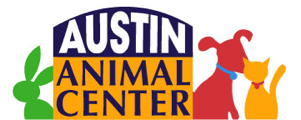The dogs on the list below are highest priority for placements.
Our shelter continues to be at capacity and we take in more medium/large dogs than we get out most days. Kennel space is needed for our new arrivals, which means our team always has an urgency to move dogs out of the shelter. Due to the fact that we have no open kennels and more dogs are coming in than are going out, all the dogs on this list should be considered urgent placements. We are sharing this in an effort to find homes for these dogs as quickly as we can, so that we do not have to euthanize them because of how full we are.
Being deemed “urgent placement” is an opportunity for our organization to focus attention and advocate for potentially at-risk dogs by finding ways to improve quality of life or find appropriate placement alternatives. We also track when we’ve marketed these dogs, if they go to playgroups, if they participate in outings, if they have a high quality photo and a bio on their adoption profile, and much more.
The urgent placement list is also intended to help stakeholders emotionally prepare in the event that tough decisions are made. It’s not impossible for a dog to bypass the urgent placement list and move to humane euthanasia if the situation warrants it, such as dogs with significant bite history or medical emergencies. Note: This list is not a replacement for euthanasia notices, mandated by city ordinance to go out at least 48 hours prior to euthanasia. Dogs who are experiencing irremediable suffering or have inflicted a severe, unprovoked injury are not required to have notices.
Dogs on this list are eligible to go to a foster home on a case-by-case basis; depending on the dog's behavior history, the foster's dog experience, and the foster home's conditions (other pets, yard, high/low traffic, etc). If you are interested in fostering one of these dogs, please visit the foster page to fill out an application. You can also follow up with an email to animal.behavior@austintexas.gov expressing your interest in a particular dog.
Terminology
| Reason Added | Reason to Adopt | ||
| LOS |
Length of Stay Currently, any dog that has been in the shelter for at least a year is automatically added to this list. |
HT | Housetrained |
| QOL |
Quality of Life When we reach a level of animals that is beyond our shelter’s capacity for providing humane care, we see more pets whose quality of life starts to deteriorate in the shelter environment. Dogs who spend months in a shelter may begin deteriorating and/or medically suffering in the shelter (which can include refusal to eat, losing weight, panting/barking all day long, spinning in their kennels, vomiting and diarrhea, and other concerns), and we must evaluate whether it is humane to keep this animal in our care any longer. We provide medications to help ease their stress, but many animals are so stressed that medications only provide so much relief. |
EWOK | Experienced with older kids |
| JM | Jumpy/mouthy | EWYK | Experienced with young kids |
| RG | Resource guarding | EWD | Experienced with other dogs |
| D2D | Meet and greet required with any resident dog(s) | EWC | Experienced with cats |
| DR | Dog reactive | LLW | Loose leash walker |
| BR | Barrier reactive | TM | Treat motivated |
| TS | Touch sensitive | ||
Urgent Placement List
This list is a living document updated by staff when dogs are added or removed as necessary.

